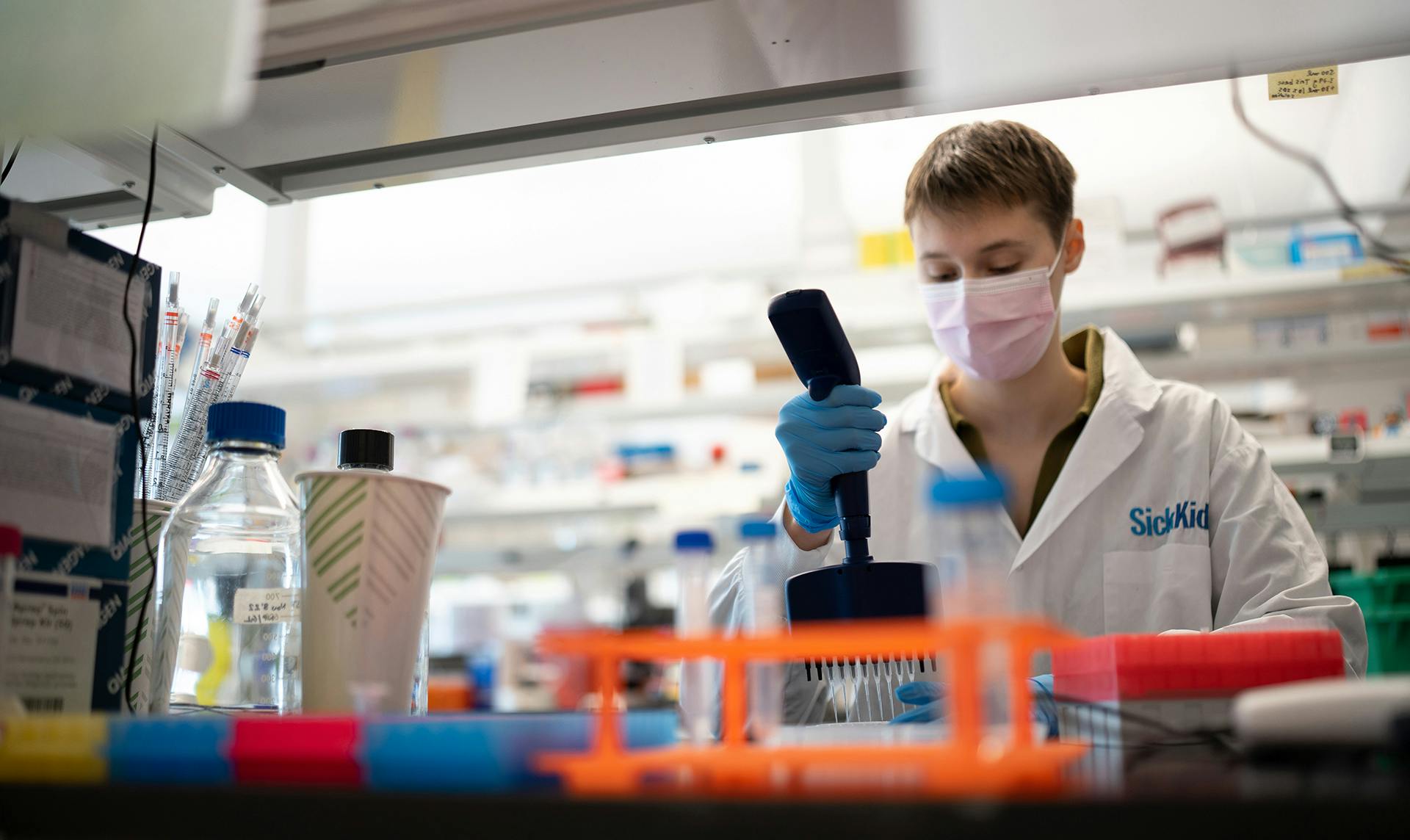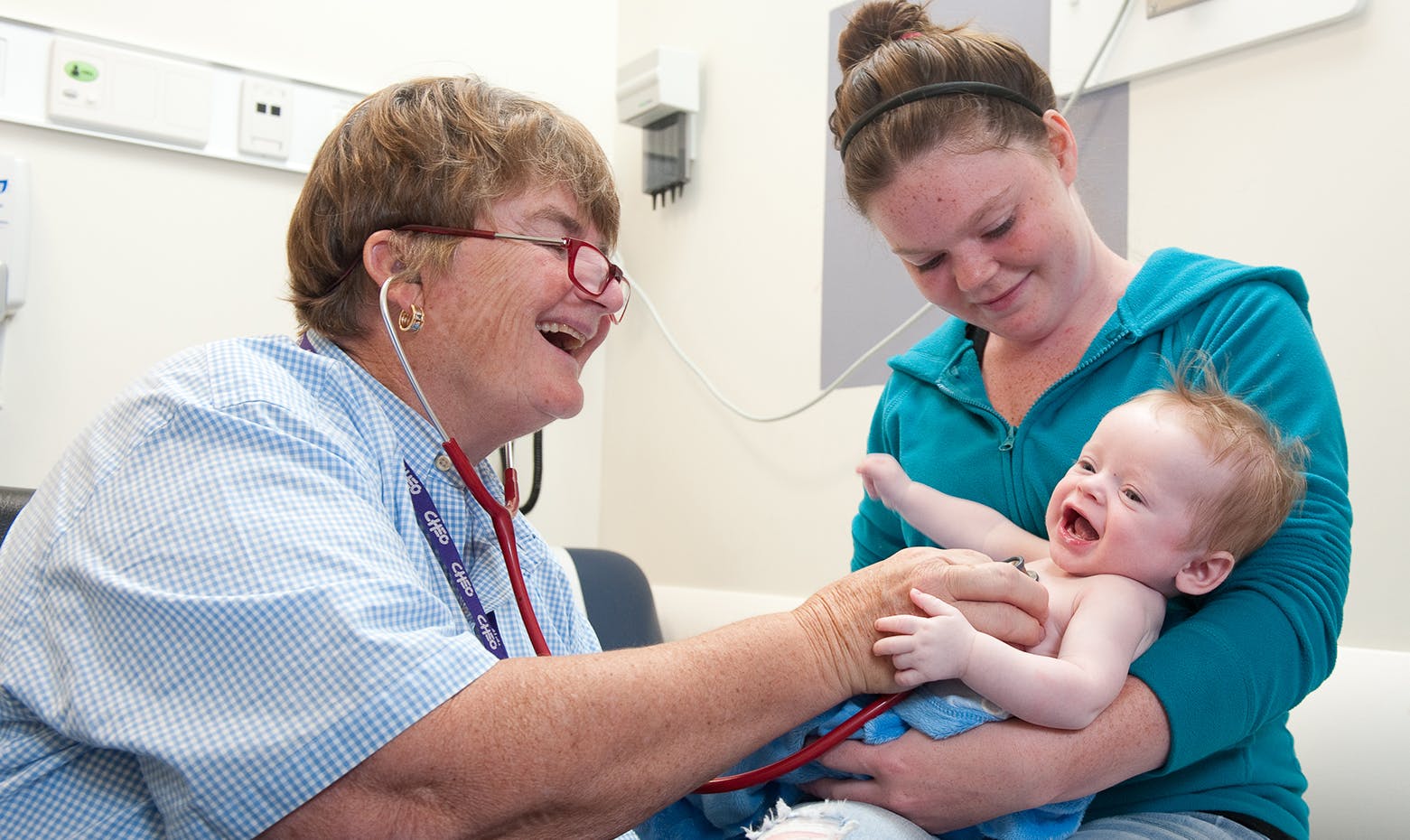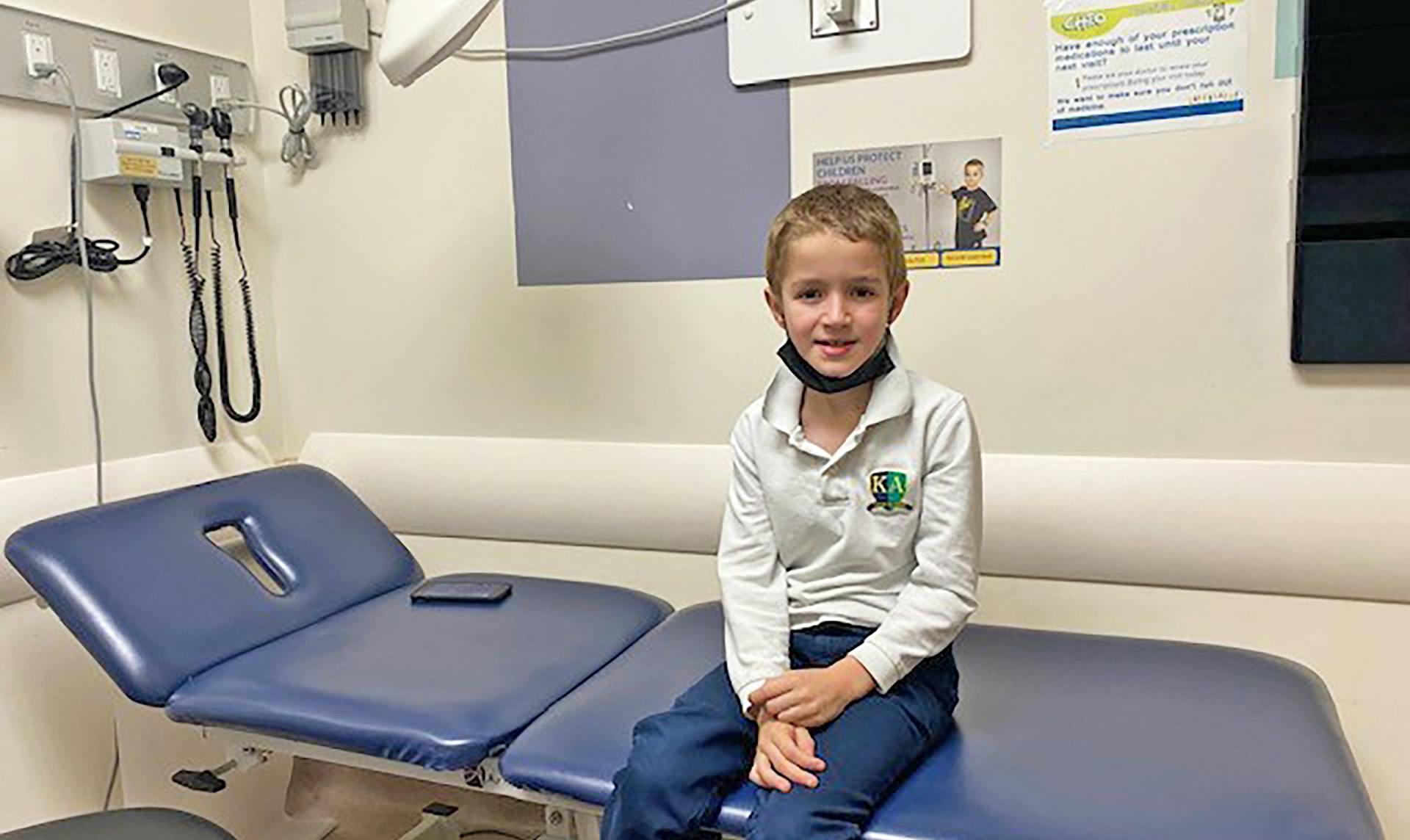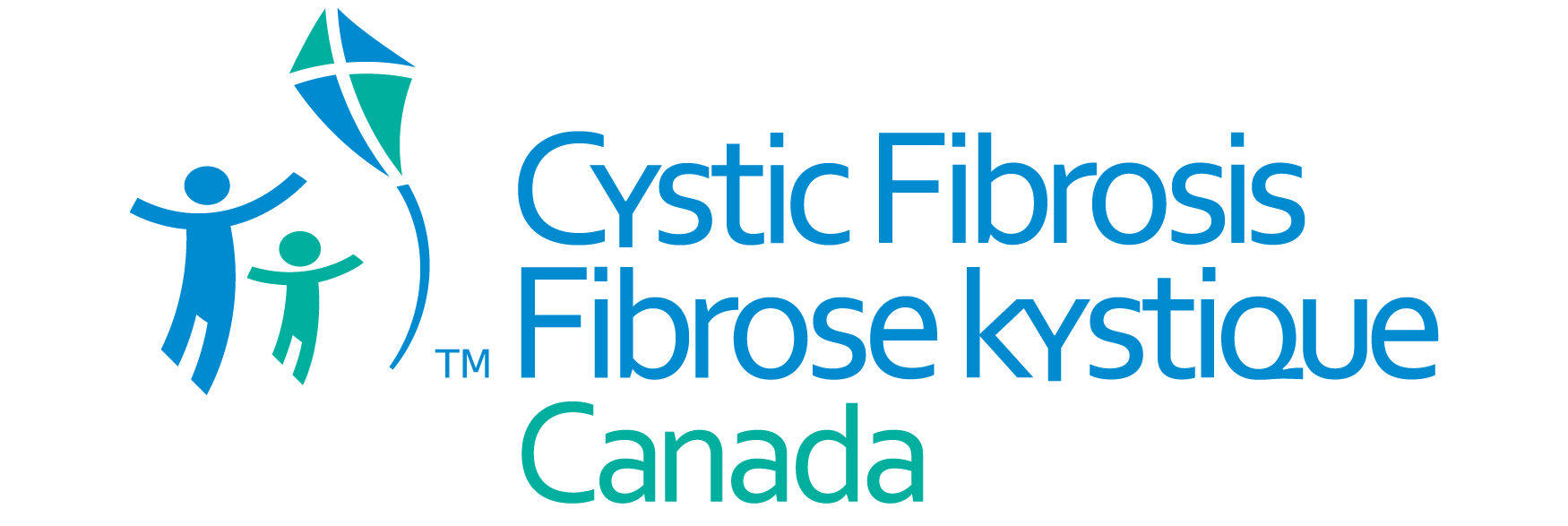A new diagnosis of cystic fibrosis
A new cystic fibrosis (CF) diagnosis can be overwhelming and all-consuming. Cystic Fibrosis Canada can help you by connecting you with important resources and information.

What now?
The information below will provide you with details on how cystic fibrosis is diagnosed, guidance on explaining CF to those around you and more topics related to receiving a CF diagnosis.


How is cystic fibrosis diagnosed?
Early diagnosis of cystic fibrosis in Canada occurs through newborn screening programs where a sweat test is used to confirm diagnosis.
In all provinces and territories, the process of newborn screening occurs shortly after a baby is born. A small blood sample is taken from the baby’s heel and screened for several different health conditions. The laboratory screens for cystic fibrosis by testing for a chemical made by the pancreas called Immunoreactive trypsinogen (IRT). If the initial IRT screen is high or positive, more testing at a specialized CF clinic is needed to determine if the baby has cystic fibrosis or not. These tests will include a sweat test, but other tests may also be done such as detailed genetic testing looking for mutations in the CF gene. If more genetic testing is needed, a blood sample is required.
More on cystic fibrosisWhat is a sweat test?
Sweat tests are generally ordered to confirm a diagnosis of CF if a newborn screening test comes back high or positive. The sweat test is an accurate test for detecting abnormal function of the cystic fibrosis protein. It measures the amount of chloride (salt) present in the sweat. Cystic fibrosis is the most common cause of an elevated sweat chloride level. The sweat test is non-invasive and is done by collecting a small amount of sweat from the skin.
The sweat test is simple, very accurate and pain free, i.e. there are no needles used. Sweat tests are not generally done on someone unless they show signs that they may have cystic fibrosis. A CF diagnosis would include a positive sweat test result and two identified CFTR mutations. To learn more about a sweat test and how it is done, please contact your local CF clinic.
Find a cystic fibrosis clinic
What is genetic testing?
Genetic testing can be used to confirm a CF diagnosis by identifying two CFTR gene mutations and includes testing for a panel of common CF mutations. Inconclusive tests can occur when an individual has a rare mutation, in which case further testing would be required. If you have a family history of CF and know the specific mutations, it is best to communicate that when seeking a test.
Genetic testing may also be done to confirm carrier status (possessing a single CFTR gene mutation and having one copy of the normal CFTR gene, but not having CF) and for family planning purposes. It is important to note that carriers do not have CF and will have a sweat test measurement in the normal range.
In most Canadian provinces and territories genetic testing is covered if the test is ordered by a physician and testing is indicated – typically meaning there are symptoms of CF, a family history of CF or the individual is a partner of someone with a family history of CF and is wanting to start a family.
Cystic Fibrosis Screen Positive Inconclusive Diagnosis (CFSPID)
CFSPID is a diagnosis that indicates a positive newborn screening result but does not meet all the criteria for a cystic fibrosis diagnosis. Children diagnosis with CFSPID are expected to lead a longer and healthier life than those with CF. Although most people with CFSPID will remain healthy, some may experience milder symptoms of CF disease. It is possible that some children may develop more significant evidence of CF disease later in life. Currently, there is not enough information available to predict who will remain healthy and who will develop CF disease.
Explaining CF to those around you
A cystic fibrosis diagnosis is challenging in many ways, including sharing the news with others.
With more people with cystic fibrosis living to adulthood and having families, there comes the question of sharing information about their condition with their children.
Experts encourage parents to include children by discussing cystic fibrosis in age-appropriate language and involving them in day-to-day activities. This inclusiveness tends to support the child, alleviate fears and prepare the child for situations, e.g., a health crisis that may evolve.
The content of the discussion should be individualized/tempered according to the child’s age. For instance, preschoolers may not understand direct words but are sensitive to a parent’s emotions and stresses. This age group may simply require reassurance. Once the child gets older, they may be curious and ask more about your condition. Don’t be afraid to answer their questions. Use this site and our guide to help explain cystic fibrosis and support them to spread the word by talking with their friends.
Cystic fibrosis affects the entire family, so it’s important to discuss it openly with everyone. If you have any questions about this or other topics like this, your clinic's social worker or nurse are a great resource.
For parents who have children with cystic fibrosis, we have a resource available to provide educators with background information on the experiences of children and adolescents with cystic fibrosis.
Late cystic fibrosis diagnosis
While most new cystic fibrosis diagnoses are detected very early in life via newborn screening (available in all provinces and territories), there are some children, adolescents and adults who are identified at various ages and stages..
Most adult diagnoses are made when an individual exhibits one or more symptoms typical of CF. Once an individual begins to exhibit these symptoms, a sweat test will be ordered, and if positive generally will be followed by genetic testing for CFTR mutations. The most common symptoms include chronic coughing, recurrent sinus infections, infertility, and inability to gain weight. Abnormal bowel movements may also be an indication. The key diagnostic tool is a sweat test.
Research has shown that people with late diagnosis generally demonstrate fewer complications, less serious lung disease and a lower incidence of pancreatic problems.
A late diagnosis of cystic fibrosis can be a shock at first as it represents a change in day-to-day life. Many people in this situation experience denial, anger and/or confusion and, for some, these symptoms and feelings may be overwhelming. It can sometimes bring a sense of relief, to have an answer to what is causing the symptoms and to be able to access the best possible care.
An important first step is to learn about cystic fibrosis and what is involved in managing your symptoms. It is important to understand that cystic fibrosis is something you were born with and didn’t develop due to exposure or lifestyle.

